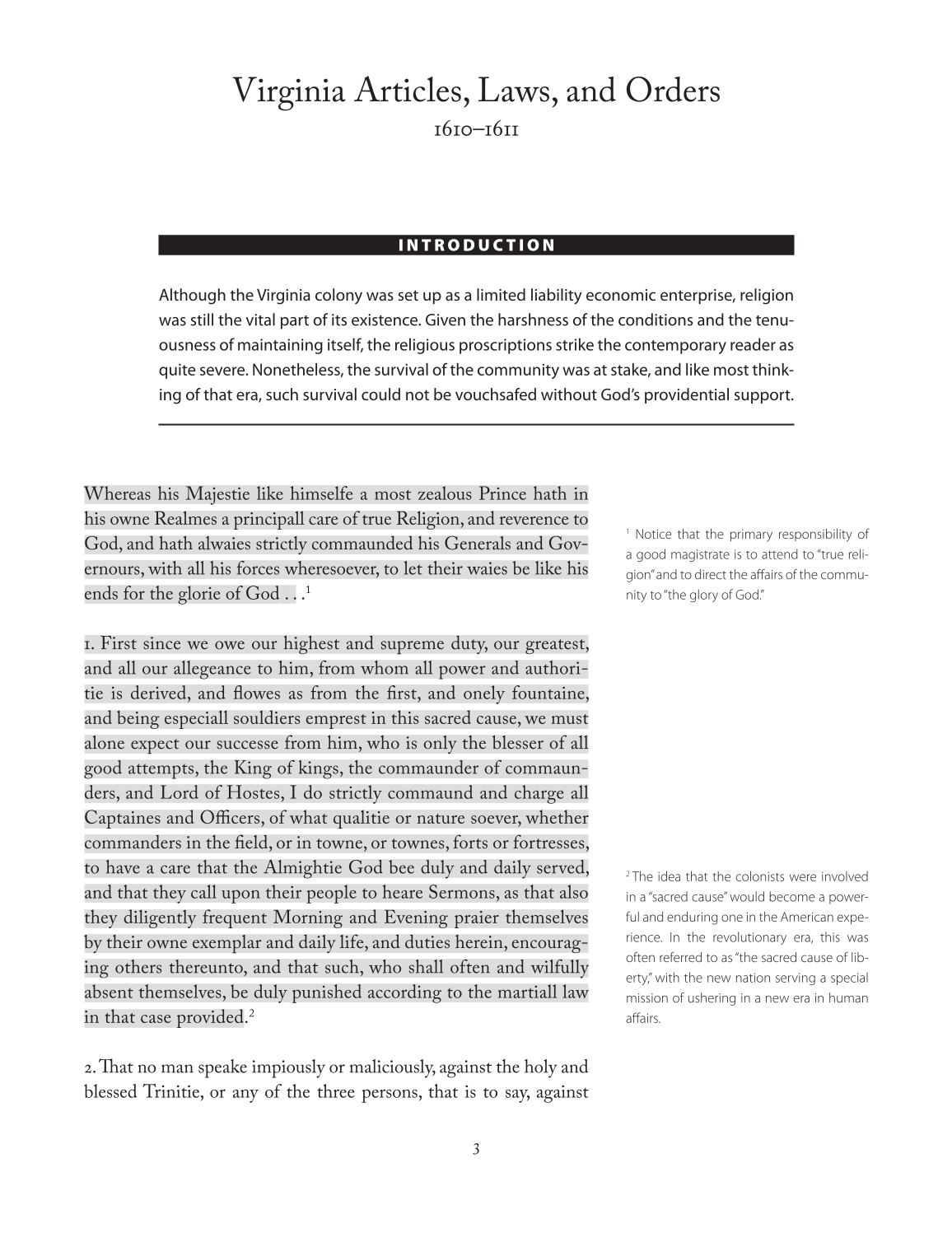3
Whereas his Majestie like himselfe a most zealous Prince hath in
his owne Realmes a principall care of true Religion, and reverence to
God, and hath alwaies strictly commaunded his Generals and Gov-
ernours, with all his forces wheresoever, to let their waies be like his
ends for the glorie of God . . .1
1. First since we owe our highest and supreme duty, our greatest,
and all our allegeance to him, from whom all power and authori-
tie is derived, and flowes as from the first, and onely fountaine,
and being especiall souldiers emprest in this sacred cause, we must
alone expect our successe from him, who is only the blesser of all
good attempts, the King of kings, the commaunder of commaun-
ders, and Lord of Hostes, I do strictly commaund and charge all
Captaines and Officers, of what qualitie or nature soever, whether
commanders in the field, or in towne, or townes, forts or fortresses,
to have a care that the Almightie God bee duly and daily served,
and that they call upon their people to heare Sermons, as that also
they diligently frequent Morning and Evening praier themselves
by their owne exemplar and daily life, and duties herein, encourag-
ing others thereunto, and that such, who shall often and wilfully
absent themselves, be duly punished according to the martiall law
in that case provided.2
2. That no man speake impiously or maliciously, against the holy and
blessed Trinitie, or any of the three persons, that is to say, against
1
Notice that the primary responsibility of
a good magistrate is to attend to “true reli-
gion” and to direct the affairs of the commu-
nity to “the glory of God.”
2
The idea that the colonists were involved
in a “sacred cause” would become a power-
ful and enduring one in the American expe-
rience. In the revolutionary era, this was
often referred to as “the sacred cause of lib-
erty,” with the new nation serving a special
mission of ushering in a new era in human
affairs.
Virginia Articles, Laws, and Orders
1610–1611
I N T R O D U C T I O N
Although the Virginia colony was set up as a limited liability economic enterprise, religion
was still the vital part of its existence. Given the harshness of the conditions and the tenu-
ousness of maintaining itself, the religious proscriptions strike the contemporary reader as
quite severe. Nonetheless, the survival of the community was at stake, and like most think-
ing of that era, such survival could not be vouchsafed without God’s providential support.









































































































































































































































































































